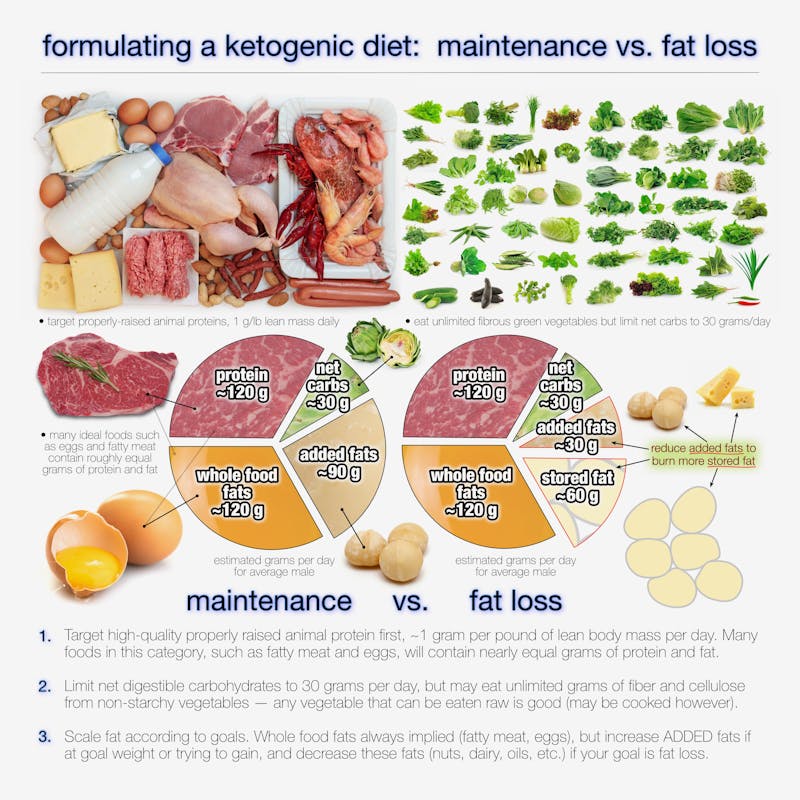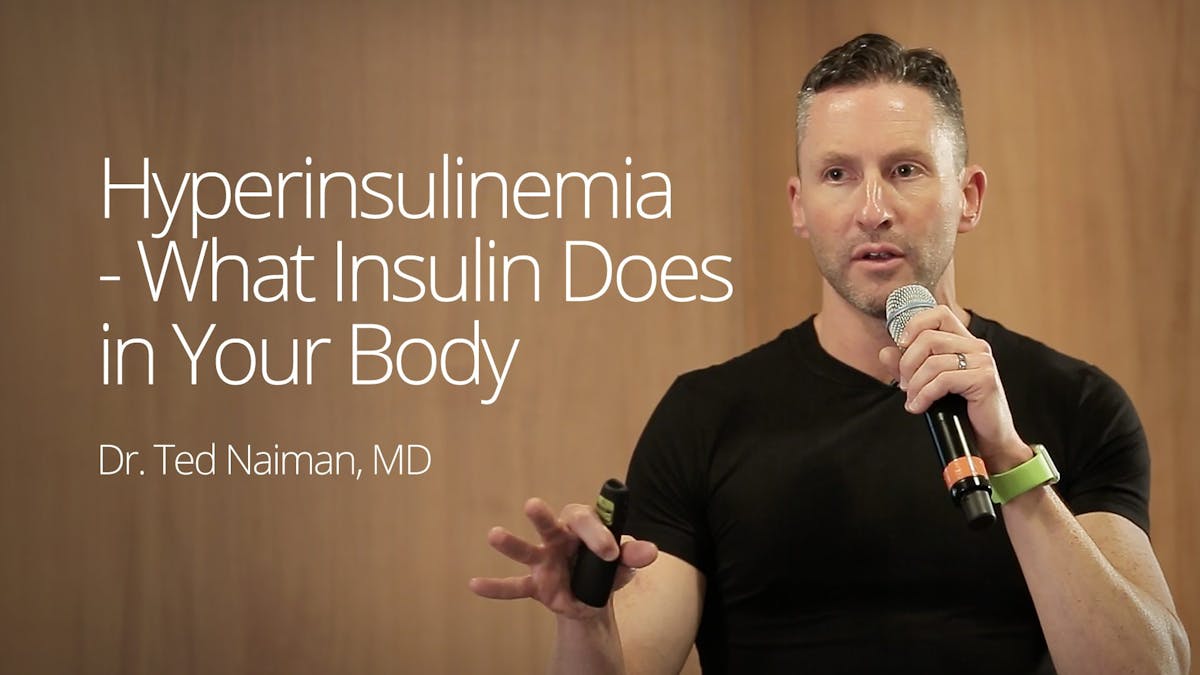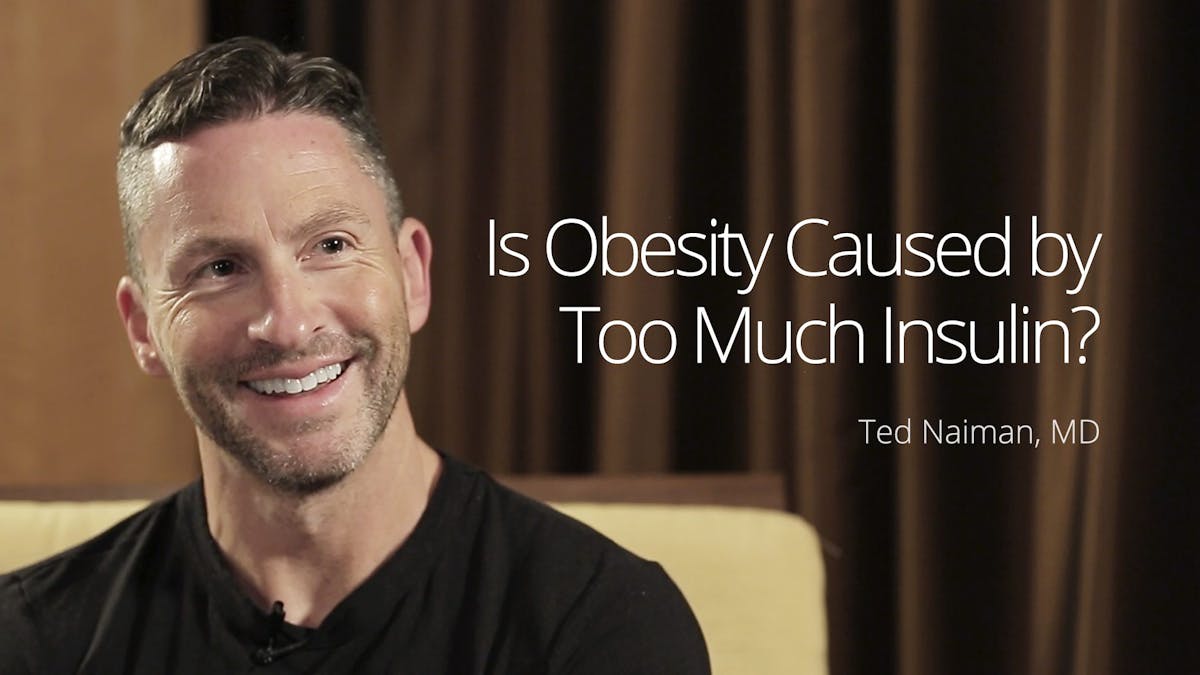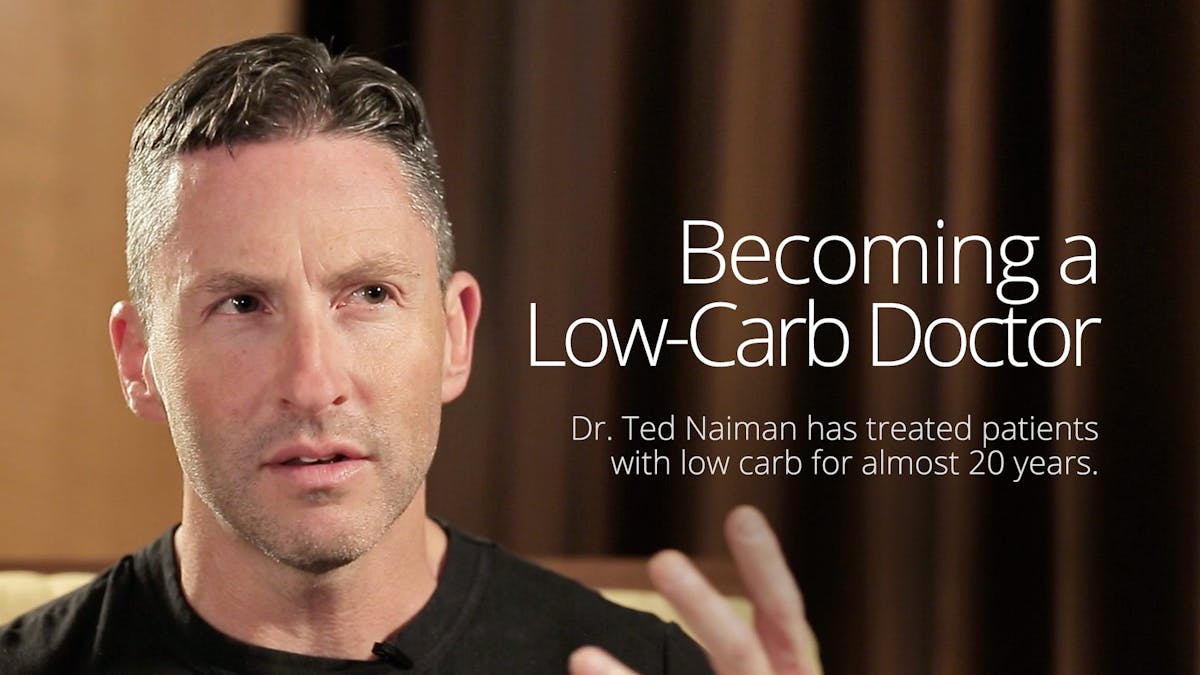How much fat should you eat on a ketogenic diet?

How much fat should you eat on a ketogenic diet? That depends. Are you following a ketogenic diet for weight maintenance or weight loss?
Depending on the reason, you might want to formulate it slightly differently, as Dr. Ted Naiman illustrates with an example above.
If you want to lose weight, then you should be a bit careful about how much fat you’re adding. Do eat enough to feel satisfied – that’s important to make it sustainable. But more than that will slow down your weight loss. You want your body to burn off body fat rather than added dietary fat.
Once you reach a normal weight, you will need to add more fat to maintain it. You’ll know when that time comes as your hunger will increase. Just follow your hunger, there’s normally no need to ever count calories.
For more details watch the first interview with Dr. Naiman, below.
More
A Quick Guide to Ketogenic Diets
Videos


More with Dr. Ted Naiman
Here’s What Happened as Obesity Doubled
The Worst Dietary Advice Ever?
Start Eating LCHF to Drastically Improve Blood Sugar
Stop Eating Grains, Sugar and Starches to Reverse Type 2 Diabetes in 3 Months!

